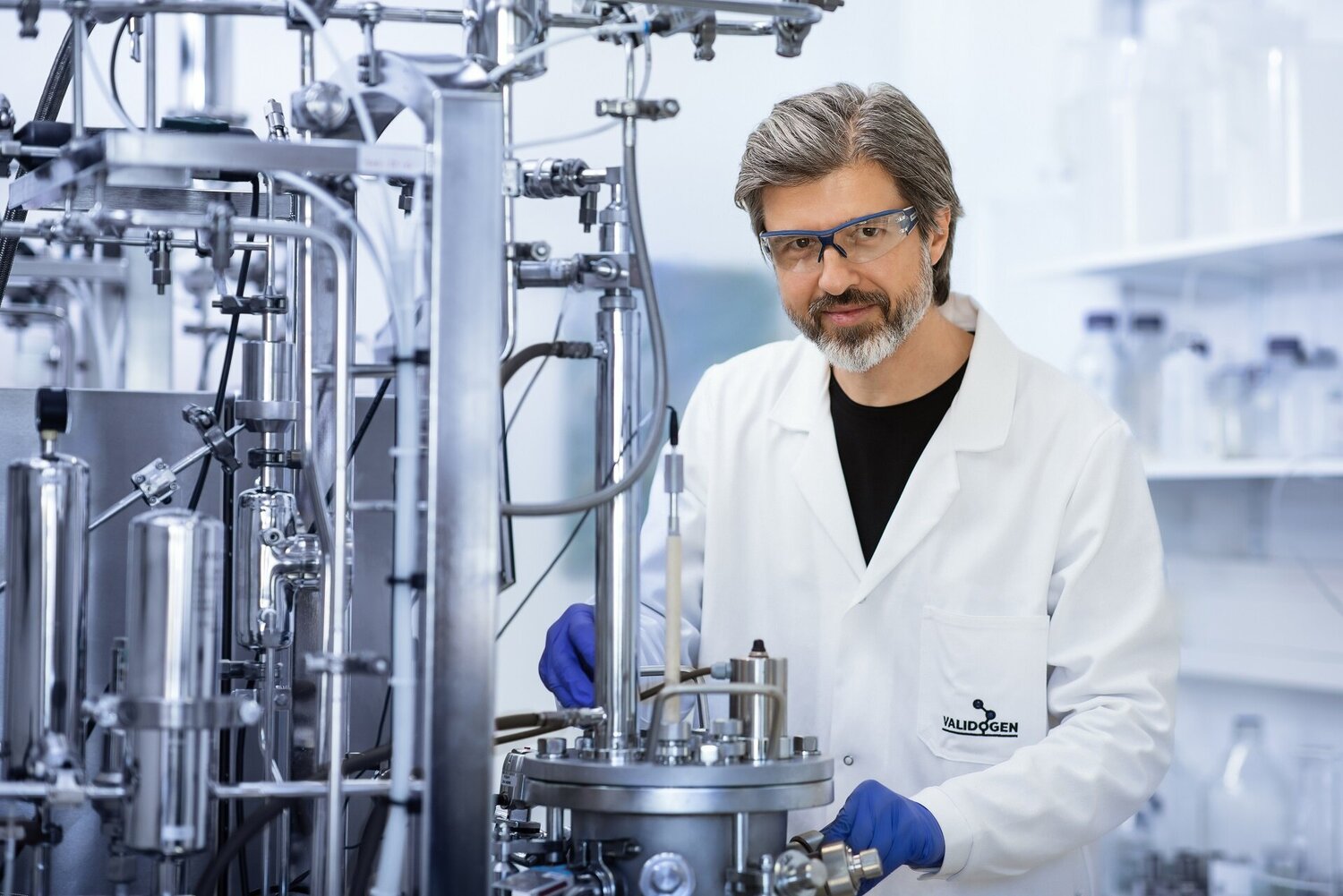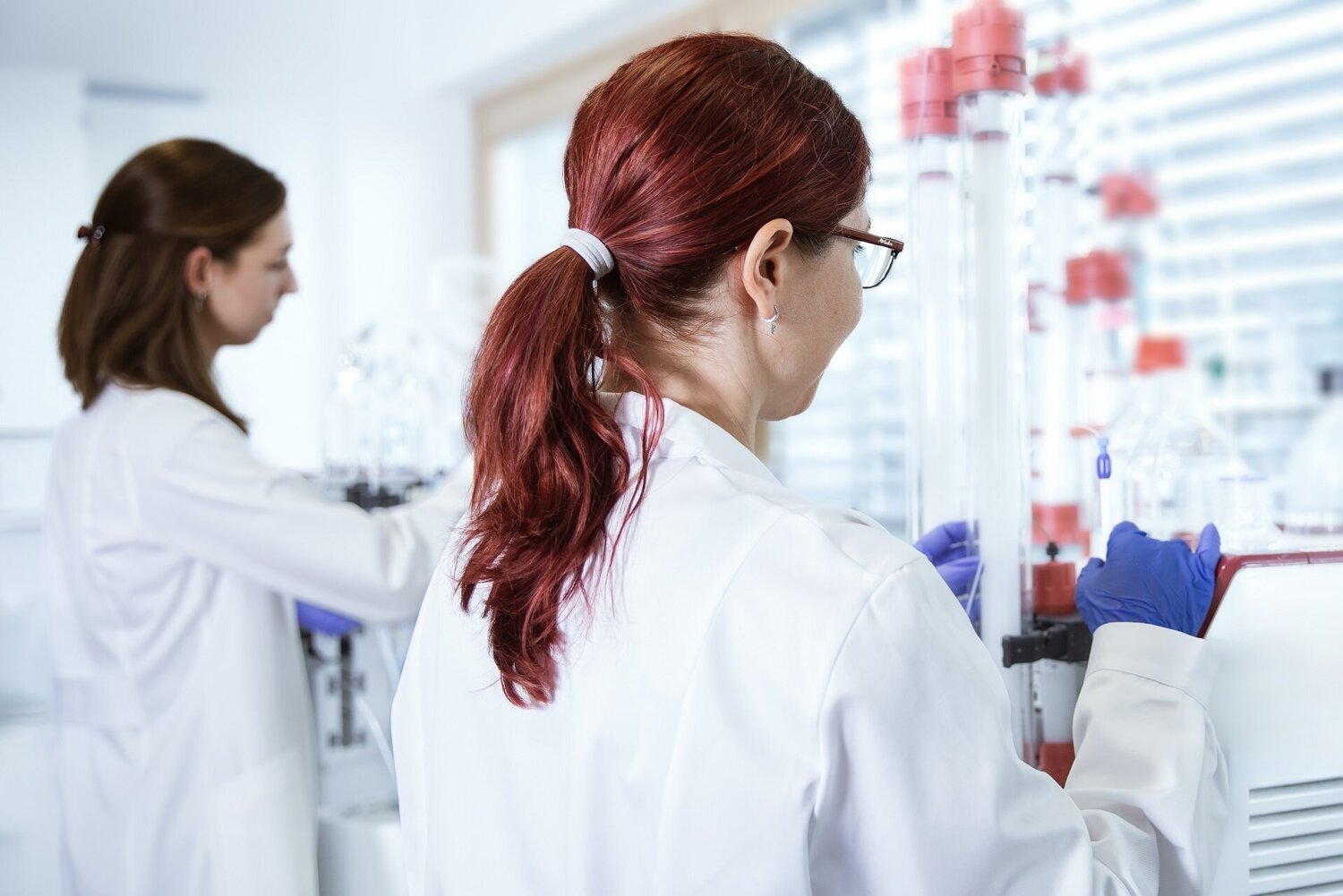Bioprocess Development
Robust and scalable fermentation & protein purification
Robust, scalable, and transferable – maximize bioprocess productivity without compromising product quality
Pichia processes at VALIDOGEN show extraordinarily high space-time yields. Multi-gram-per-liter titers are often reached in the culture supernatant (depending on the protein of interest, up to a record of 35 g/L) prior to downstream processing.
Starting from validated VALIDOGEN protocols our Pichia cultivation experts can develop an optimized process for your protein. We take into account scale-up considerations to elucidate key parameters and deliver a robust and scalable process. Our customers have successfully scaled VALIDOGEN processes to up to 100,000 L cultivation volume.
VALIDOGEN can also provide full protein purification process development. In close coordination with our customers we will evaluate chromatography steps, determine capacities, maximize yield and purity, and establish clearance of impurities.
Key Benefits
- Scalable, robust, transferable, and cmc-ready manufacturing system
- Reduced manufacturing costs through improved cultivation processes
- Intensified processes - high product titer and short cultivation time
- Strong technical expertise based on 15+ years of experience in Pichia process development
- Full documentation to simplify and support technology transfer and your regulatory filings
Transferable Pichia cultivation processes - developed with manufacturability in mind
VALIDOGEN’s 15+ years of experience have led to the development of robust cultivation protocols allowing Pichia strains with UNLOCK PICHIA® technology to maximize their productivity potential and reduce cost of protein manufacture. Starting from extensively tested and high-performing in-house protocols we can further adapt parameters to be optimal for your protein and application.
In our suite of parallel bioreactors and microbioreactor system we can undertake development and optimization work for your process with short lead times. From small process parameter modifications to extensive Design of Experiment investigations a process customised for your protein will be developed, always with manufacturability in mind.
In addition to our highly efficient methanol-induced promoter variants and sophisticated fermentation protocols, we develop effective methanol-free processes based on VALIDOGEN's methanol-free promoter variants. Methanol-free cultivation offers advantages of avoidance of hazardous chemicals, more economical production plant requirements, no metabolic burden from change of carbon source, and reduced aeration and cooling demand. VALIDOGEN have established methanol-free protein production strategies to shorten process time (~60h) which allows for the maximization of space-time yields.
Key features
Projects tailored to your needs – from rapid setup to fully developed processes
To allow our customers to quickly receive a small sample of their protein for evaluation we can undertake rapid set-up of a purification process. In a short time we can provide highly pure milligram to gram amounts of your protein from a Pichia culture supernatant. Considering the properties of the protein and our experience we will scout multiple methods to identify the right purification strategy to achieve the desired specifications. Purification methods often include standard chromatography techniques such as ion exchange or hydrophobic interaction as well as affinity chromatography, and may be combined with ultrafiltration steps.
Our DSP team can also take downstream processing one step further by providing full, in-depth process development for a robust, scalable process. In close coordination with our customers we will evaluate capacities of individual chromatography resins, maximize yield and purity, establish clearance of impurities, and understand how process steps are interlinked. Comprehensive documentation and support guarantee smooth transfer of the optimized downstream process to your production site.
All DSP activities are accompanied by analytical characterization of process intermediates and purified product. Established in-house methods include PAGE, capillary electrophoresis, HPLC, Western Blot, and ELISA, as well as methods to quantify process-related impurities including HCP and host cell DNA.
Key features
OUR TEAM OF EXPERTS
Contact us to learn more about VALIDOGEN’s service portfolio
VALIDOGEN's expert team is happy to discuss your project and help find the right solution. Send any project related requests to project@validogen.com, directly to our scientists, or use our contact form.

